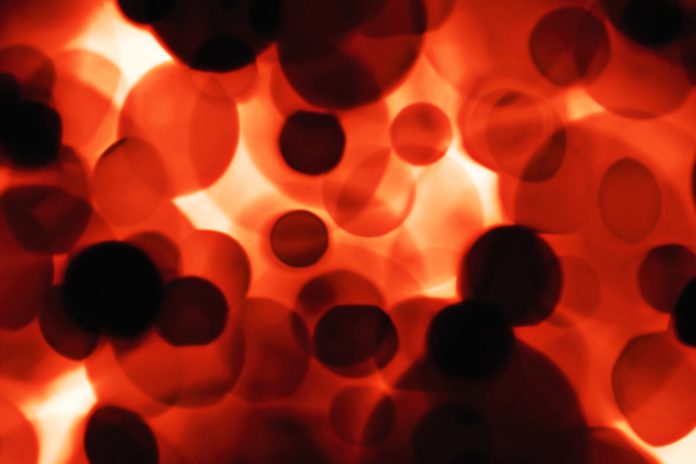Dr Peter Diamond, Head of Research from the Leukaemia Foundation, describes what we need to know about amyloidosis, a rare but devastating blood condition
Amyloidosis is a rare but devastating condition caused by deposits of proteins in tissues and organs. There are over 30 subtypes of amyloidosis, each associated with a different disorder and irregular protein. Each disorder requires a specific treatment. The clinical diagnosis of amyloidosis is complex and is often misdiagnosed with some patients needing to see several specialists over many months before the diagnosis is made. There is no specific blood test that will diagnose amyloidosis. The best current standard diagnostic tests require a tissue or organ biopsy.
AL amyloidosis
Immunoglobulin light chain amyloidosis (known as AL amyloidosis) is the most common type of amyloidosis, occurring when antibody- producing plasma cells (the same cells involved in multiple myeloma) produce abnormal protein fibres made of components of antibodies called light chains. These light chains come together to form amyloid clumps or deposits which are very difficult to break down once established and without treatment ultimately will lead to organ failure and death.
AL amyloidosis can be associated with blood cancers like multiple myeloma and Waldenstroms Macroglobulinaemia where the disease is due to the overproduction of the malignant plasma cell.
Currently, not all drugs are registered for use in Australia for use in AL amyloidosis or available through the Australian Pharmaceutical Benefits Scheme. Patients must be labelled as having “myeloma” to access Pharmaceutical Benefits Scheme reimbursed therapy.
Symptoms and diagnosis
One reason amyloidosis is often diagnosed late is because the presentation can be very different in different people. Symptoms are often vague, can mimic other medical conditions, and the most common of which include fatigue, unexplained weight loss, swelling of the ankles and legs due to fluid build-up.
Correct diagnosis of amyloidosis subtype is a critical step to inform correct management of patients and avoid inappropriate therapy. Misdiagnosis of subtype leads to inappropriate treatment and consequently to adverse outcomes for patients.
The majority of patients with AL amyloidosis fail to achieve a complete response to current chemotherapy treatments, and almost all patients eventually experience relapse and unfortunately the progression of the disease to include the involvement of organs (such as the liver, kidneys, or heart).
Treatment and trials
Collaboration between various groups within Australia has made a huge difference in increasing awareness of the disease, leading to earlier diagnosis and treatment, and improved outcomes for patients.
Also, international collaboration with research and clinical trials has accelerated novel drug discovery and accessibility within Australia.
A new international clinical trial, the first-ever Amyloid research collaboration between Australia and France, has provided Australians with relapsed or refractory AL amyloidosis access to a new drug combination. Australia’s leading clinical trials group in blood cancer, the Australasian Leukaemia & Lymphoma Group (ALLG,) is leading the trial, with vital funding provided by the Leukaemia Foundation.
The ALLG MM24 PISA study is a Phase II, multi-centre, open-label international trial using a combination of isatuximab, pomalidomide, and dexamethasone (IPd therapy). This combination has previously been used in a large Phase III study for relapsed/refractory myeloma and was approved for use with these patients.
The MM24 trial is being run in Australia and France, at 15 trial sites across the two countries, including four in Australia and provides an opportunity for relapsed or refractory AL amyloidosis patients to receive potentially ground-breaking therapy that is not otherwise available.
Isatuximab is not currently available for either myeloma or AL amyloidosis in Australia, although the combination of pomalidomide and isatuximab has been studied in myeloma, with impressive results. In the amyloidosis setting, isatuximab has had very limited experience worldwide.
Treatment options are quite limited for patients who do not have an adequate response to VCd chemotherapy (standard therapy), so this trial provides an option for patients who do not achieve a good response to VCd, but who are not fit enough to get a stem cell transplant.
Funding support from the Leukaemia Foundation
The Leukaemia Foundation is supporting this clinical trial with funding of $250,000 over three years as part of the Trials Enabling Program, which helps Australians with blood cancer access promising new drugs through international clinical trials.
It is the first time Australian AL amyloidosis patients who are relapsed, or refractory will have access to a combination of pomalidomide and isatuximab.
We are hoping that with increased investment and better diagnostics into AL amyloidosis, we will see improved treatment options for patients, as well as improved outcomes and ultimately a better quality of life.
The Leukaemia Foundation has more information about amyloidosis here. To subscribe to the Leukaemia Foundation’s Amyloidosis news visit https://www.leukaemia.org.au/news/stories/











